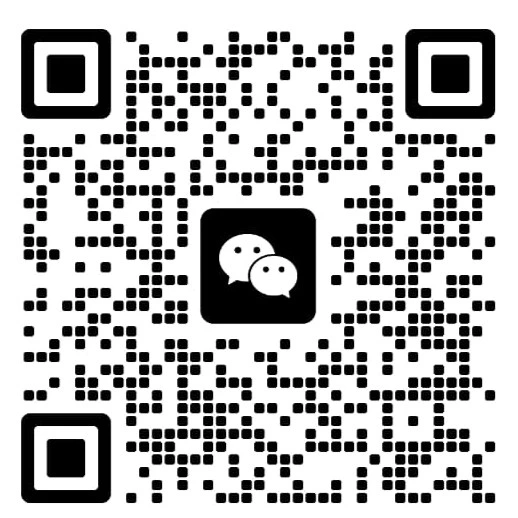Indonesia represents both a lucrative market and a complex regulatory landscape. As the world’s largest Muslim-majority nation, Indonesia has established one of the most comprehensive Halal certification systems in existence by covering everything from food and cosmetics to pharmaceuticals, medical devices, and food supplements.
Adherence to Halal certification for foreign manufacturers and distributors is now a mandatory requirement for Indonesian exporters. It is a legal requirement under Law No. 33 of 2014 on Halal Product Assurance, and an essential foundation for entering one of Asia’s fastest-growing consumer markets.
This article offers a strategic, non-technical examination of the Indonesian Halal ecosystem. It focuses on how exporters can comply with local regulations, incorporate Halal principles into their supply chain strategies, and utilize certification to gain a competitive edge.
Understanding Indonesia’s Halal Regulatory Framework
Indonesia’s Halal system is designed to integrate religious, scientific, and administrative elements into one standardized certification structure. There are key legal foundations:
- Law No. 33/2014 on Halal Product Assurance (UU JPH)
- Government Regulation No. 39/2021
- Ministry of Religious Affairs Regulation No. 26/2019
Together, they require that all products circulating in Indonesia be certified Halal or clearly labeled non-Halal before entering the market. And also, Indonesia has primary authorities who manage halal certifications.
- BPJPH (Badan Penyelenggara Jaminan Produk Halal) – the main certification body issuing Halal certificates.
- LPH (Halal Inspection Bodies) – accredited organizations performing technical audits.
- MUI (Indonesian Ulema Council) – provides religious validation (fatwa) for Halal determinations.
- BPOM (National Agency for Food and Drug Control) – regulates safety and product quality in parallel.
Unlike many countries where Halal certification is voluntary, Indonesia enforces it through state regulation, making it a mandatory part of import and distribution licensing.
The Scope of Mandatory Halal Certification in Indonesia
The government’s roadmap for full Halal enforcement extends through 2026, prioritizing categories with the highest consumer exposure:
- Food & Beverages
- Cosmetics & Personal Care
- Pharmaceuticals & Food Supplements
- Medical Devices
- Chemical and Biological Products (enzymes, collagen, gelatin)
Products that are not certified must carry a “Non-Halal” label and are excluded from many retail, government, and e-commerce platforms.
This phased enforcement means exporters should act early. Companies that complete Halal certification ahead of schedule gain smoother customs clearance, higher buyer confidence, and better access to Indonesia’s public procurement system.
Indonesia’s Position in the Global Halal Supply Chain and Emerging Trends
Indonesia’s Halal transformation is reshaping both its domestic market and the global supply chain. As the largest Muslim-majority country and one of the world’s top importers of consumer goods, Indonesia is striving to become a Halal Quality Hub, functioning as a regulatory and economic center that bridges producers, exporters, and consumers throughout the Islamic world.
Indonesia’s Expanding Role in the Global Halal Network
- ASEAN Halal Integration: Indonesia is driving the ASEAN Halal Framework, which seeks to harmonize certification and mutual recognition among member countries. This allows exporters who comply with Indonesian standards to gain easier access to regional markets such as Malaysia, Thailand, Brunei, and Singapore.
- OIC Collaboration: Through the Organization of Islamic Cooperation, Indonesia’s BPJPH participates in developing unified global Halal standards, aligning certification formats and audit protocols for smoother cross-border trade.
- Mutual Recognition Agreements (MRA): Active MoUs with countries such as Malaysia, Brunei, and the UAE support the acceptance of Indonesian Halal certificates abroad making Indonesia a regulatory reference point for Halal quality.
- Halal Industrial Zones (HIZ): Dedicated Halal manufacturing hubs in Batam, Bintan, and Sidoarjo are designed to streamline logistics, certification, and export operations. These zones attract multinational companies seeking to manufacture or distribute certified Halal products closer to ASEAN consumers.
- Halal Ecosystem Master Plan 2025: Indonesia’s national roadmap emphasizes supply chain transparency, Halal testing labs, and trade facilitation, targeting USD 330 billion in Halal economy value by 2025.
Emerging Trends Strengthening Indonesia’s Halal Leadership
- Digital Halal Certification: The enhanced SiHalal 2.0 platform by BPJPH streamlines the certification process for international applicants. It enables remote registration, tracking, and management, thereby simplifying administrative procedures for exporters.
- Integration with ESG and Sustainability: Halal principles increasingly align with global sustainability frameworks. Indonesian policymakers now link Halal certification to ethical sourcing, waste reduction, and traceable supply chains.
- Innovation in Halal Science: Investments in Halal analytical laboratories and R&D for plant-based or synthetic alternatives are transforming industries like nutraceuticals, cosmetics, and biotechnology.
- Public–Private Partnerships: Collaboration between regulators, universities, and private certification bodies accelerates Halal standard development and digital transformation.
- Global Recognition Momentum: Indonesia’s leadership in Halal governance has earned it a central role in shaping international discussions on trade ethics, quality control, and consumer protection.
Then, Why Exporters Should Prioritize Halal License in Indonesia
As discussed earlier, Indonesia has the potential to become a large market for halal products, which is why halal certification has become an important business license in Indonesia.
1. Regulatory Gatekeeping
Since 2026, all imported products within Halal-regulated categories must obtain BPJPH approval before distribution. Non-certified goods face customs holds or removal from online marketplaces.
2. Regional Market Recognition
Indonesia’s Halal certification is acknowledged by multiple ASEAN and OIC partners through mutual recognition agreements. A single Indonesian certificate can open access to regional markets.
3. Brand and ESG Alignment
Halal aligns naturally with sustainability and clean-label movements—representing ethical sourcing, transparency, and consumer health protection.
4. Tender and Procurement Eligibility
Public hospitals, schools, and government agencies now prioritize Halal-certified suppliers. For exporters, certification means eligibility for Indonesia’s e-Katalog government procurement system.
5. Consumer Trust
Indonesian consumers consistently associate Halal products with safety, authenticity, and reliability. Certification elevates both reputation and perceived quality.
Because it is such an important license, especially for products related to cosmetics, food and beverages, medicines, and medical devices, there are several challenges commonly faced by exporters.
- Document Legalization Delays – CFS and GMP certificates often lack embassy legalization.
- Translation Requirements – All dossiers must be in Bahasa Indonesia.
- Dual Approvals – Overlapping BPOM and BPJPH documentation can confuse.
- Limited Local Representation – Distributors are not always qualified for license holding or audit liaison.
- Underestimating Preparation Time – Ingredient traceability and supplier verification can extend lead times.
Solution: Work with an experienced Halal regulatory partner that coordinates cross-agency submissions, translations, and embassy legalizations seamlessly.
Obtaining Halal certification is only the beginning. To maintain access to the Indonesian market, exporters must:
- Conduct annual internal audits under the Halal Assurance System (HAS 23000).
- Notify BPJPH of any changes in ingredients, suppliers, or product formulations.
- Renew certificates before their four-year validity expires.
- Retain documentation for a minimum of five years for audit purposes.
By understanding Indonesia’s halal regulatory framework, coordinating BPJPH and BPOM approvals, and embracing digital compliance systems, exporters can transform regulatory readiness into a long-term strategic advantage. We offer an end-to-end solution tailored for exporters:
- Regulatory Mapping & Pre-Assessment: Identify mandatory Halal categories for your product line.
- Dossier & Translation Management: Prepare compliant BPJPH and BPOM documentation.
- BPJPH Application & Audit Liaison: Coordinate with inspection bodies and ministries for faster approvals.
- Post-Certification Support: Maintain renewals and continuous Halal compliance.
Led by Dr. Hussein H. Mashhour, a seasoned medical and regulatory expert, PRI combines deep sector knowledge with local authority relationships, ensuring your Halal certification process is efficient, transparent, and globally aligned.
📩 Contact Product Registration Indonesia today to streamline your Halal export strategy and secure your place in Southeast Asia’s ethical trade future.





